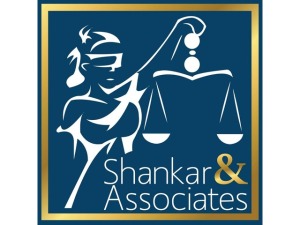PERM Labor Certification Application | Free Consultation
Labor Certification Requirements
Both the employer and the employee must meet certain conditions when submitting a PERM labor certification application. The petitioner is the employer, and the beneficiary is the potential employee.
Requirements of the Employer
The petitioning employer must show that the following facts are true:
- The work is a full-time position in the United States.
- The role is a legitimate job opportunity for Americans.
- The job requirements are not suited to the qualifications of the alien worker.
- In other words, unless such requirements can be proved to emerge out of business necessity, the employer must establish that the job’s criteria are not overly restrictive.
- The provided wage is in line with industry standards.
- To meet this requirement, the wage must be equal to or greater than the prevailing wage in the intended employment region for the occupation. (Previously, the US Department of Labor (DOL) accepted a 5% deviation; however, this is no longer allowed.)
- It has the financial means to pay the wage offered.
- Following the recruitment process, it is found that there are insufficient qualified, willing, and able American workers to accept the job offer and fill the vacancy.
- The alien’s employment will not have a negative impact on American workers’ pay or working conditions.
Requirements for Potential Employees
The following must be attested to by the beneficiary:
- He or she met the position’s educational and work experience requirements at the time the labor certification application was submitted. If the beneficiary meets or exceeds the minimum standards, there is not a problem.
- He or she keeps his or her legal position (if residing in the U.S.).
Both the Department of Labor (DOL) and the United States Citizenship and Immigration Services (USCIS) informally allow sponsoring employers to apply for labor certification and file an immigration petition based on prospective employment, despite the fact that it is not explicitly allowed in regulations. As a result, it makes no difference whether the immigrant works for the sponsoring employer during the application process or after it is approved. Furthermore, after a labor certification is obtained, the sponsoring business is not obligated to continue employing the immigrant. However, after gaining permanent resident status, the foreign employee should work for the sponsoring firm for a fair period of time.
Costs
Sponsoring employers have been responsible for all costs related with preparing, filing, and getting a labor certification since July 16, 2007. Expenses incurred during recruitment, as well as attorney’s fees, are included in this category.
Sponsoring businesses are prohibited from receiving any sort of payment as an incentive or inducement to file labor certification applications, as well as from recouping costs, such as attorney’s fees, incurred while preparing for and filing an application, under DOL guidelines. Employers who file a petition are no longer allowed to pass on the costs to the alien. They also cannot claim indirect repayment by deducting expenditures from the alien’s wages or benefits. Both the employer and the foreigner are responsible for their own legal bills.
Initiative of the USCIS
USCIS initiated an effort in 2011 permitting foreign entrepreneurs to apply for labor certifications under the EB-2 visa category in order to support start-up firms, decrease barriers to full employment, and expedite growth for businesses managed by job-creating entrepreneurs. The project’s long-term viability has yet to be determined.
Overall, PERM labor certification is a time-consuming and complicated process. We urge that you seek the advice of an expert immigration lawyer.

Contact Us For Free Consultation
📞 : 212-461-1467, 800-461-1467
📧 : shankar@shankarlaw.com
rajat.shankar@shankarlaw.com
sastry@shankarlaw.com
🌎: https://shankarlaw.com/
📍 : 518 Plainview Road
Plainview, NY, 11803